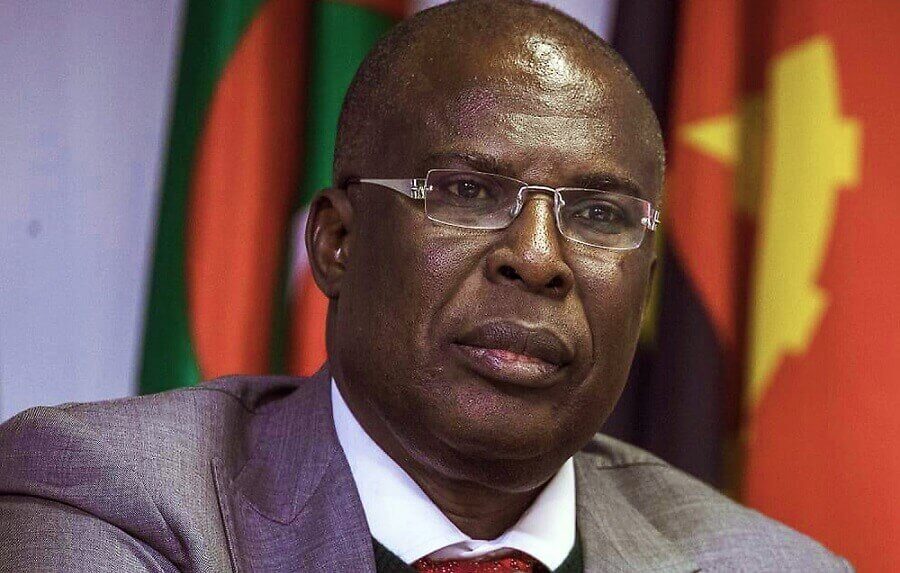The decision of the Federal Government to extend the implementation period for fuel subsidy removal is to forestall supply disruptions and guide market readiness preparatory to migration to the deregulated pricing regime.
The Minister of State for Petroleum Resources, Timipre Sylva, said this on Tuesday during a media briefing held at the State House on the current status of the Federal Government’s plan on Premium Motor Spirit Subsidy as regards the implementation of the Petroleum Industry Act
He said President Muhammadu Buhari has, following consultations with stakeholders, agreed to an extension of the statutory period for the implementation of the removal of subsidy on PMS in line with existing laws.
According to the Minister, the new Petroleum Industry Act provides for the unrestricted market pricing for PMS from the effective date.
However, Sylva told journalists that the PIA also envisaged the potential for supply disruption with its resultant effect on the economy.
Consequently, the Minister who is also the Chairman, PIA Implementation Committee, explained that the Act provides for a window of six months from the effective date for government to request the services of NNPC Limited as supplier of last resort.
This, he noted, is to forestall supply disruptions and guide market readiness preparatory to migration to the deregulated pricing regime.
With the assent by the President on August 16, 2021, the PMS subsidy removal was therefore expected to take place effective February 16, 2022.
However, Sylva said that following extensive consultations with all key stakeholders within and outside the government, it was agreed that the implementation period for the removal of the subsidy should be extended.
He said, “This extension will give all the stakeholders time to ensure that the implementation is carried out in a manner that ensures that all necessary modalities are in place to cushion the effect of the PMS subsidy removal, in line with prevailing economic realities.
“The President assures that his administration will continue to put in place all necessary measures to protect the livelihoods of all Nigerians, especially the most vulnerable.”
Between January and November last year, the Nigerian National Petroleum Company Ltd subsidized the price of Premium Motor Spirits for Nigerians with the sum of N1.2trn
The NNPC in its report to the Federation Account Allocation Committee had said it incurred the sum of N25.37bn on subsidy in February. No amount was spent subsidizing the product in the month of January.
The amount moved up to N60.39bn and N61.96bn in March and April, before hitting N126.29bn and N164.33bn in the months of May and June.
For the month of July, the Corporation incurred the sum of N103.28bn as subsidy on PMS, while the figure went up to N173.13bn, N149.28bn and N163bn in August, September and October respectively.
The Nigeria Labour Congress had threatened to embark on industrial action if the government goes ahead to implement an increase in the price of Premium Motor Spirit.
The Congress said this in a petition to the Governors of the 36 states ahead the planned nationwide protest scheduled for Thursday.
In the petition which was signed by the President, Comrade Ayuba Wabba, and the General Secretary Emanuel Ugboaja, the Congress called on the federal government to announce the withdrawal of its plans to increase the pump price of petrol.
It said, “The federal government should re-engage Organized Labour in Nigeria in discussions in order to find mutually acceptable solutions to the current quagmire in Nigeria’s downstream petroleum sub-sector.
“The federal government should demonstrate seriousness and commitment to overhauling our local refineries as a lasting panacea to mass importation of refined petroleum products, Importation Pricing Model, and a host of lost opportunities, official corruption and self-inflicted dislocations occasioned by mass importation of refined petroleum products into Nigeria; and
“Governments at all levels in Nigeria should take immediate steps to improve governance and public accountability in order to regain the confidence of Nigerians that the cardinal constitutional mandate of guaranteeing the welfare and security of Nigerians has not been traded off.
“Organized Labour in Nigeria as a responsible social partner is willing and ready to work with government to find enduring solutions to the crisis in Nigeria’s downstream petroleum sector and other areas of challenge in governance.
“It would be a great relief for Organized Labour if government meets us halfway in this regard. The current protest holding nationwide 27th January 2022, is only geared at alerting government on the sufferings that Nigerians are going through and the additional insufferable trauma that Nigerians would be subjected to if the government goes ahead with the hike in the price of refined petroleum products.”
 DailyrecordNg …Nigeria's hottest news blog
DailyrecordNg …Nigeria's hottest news blog









